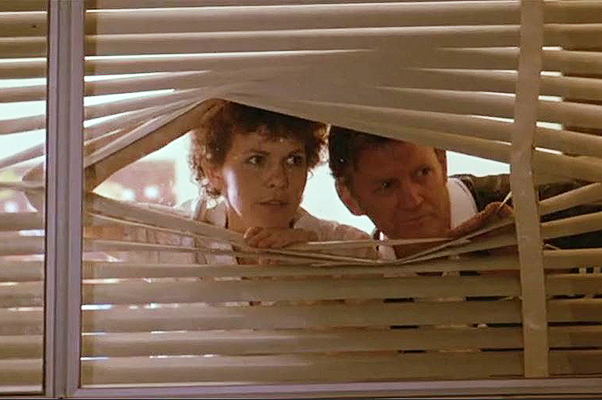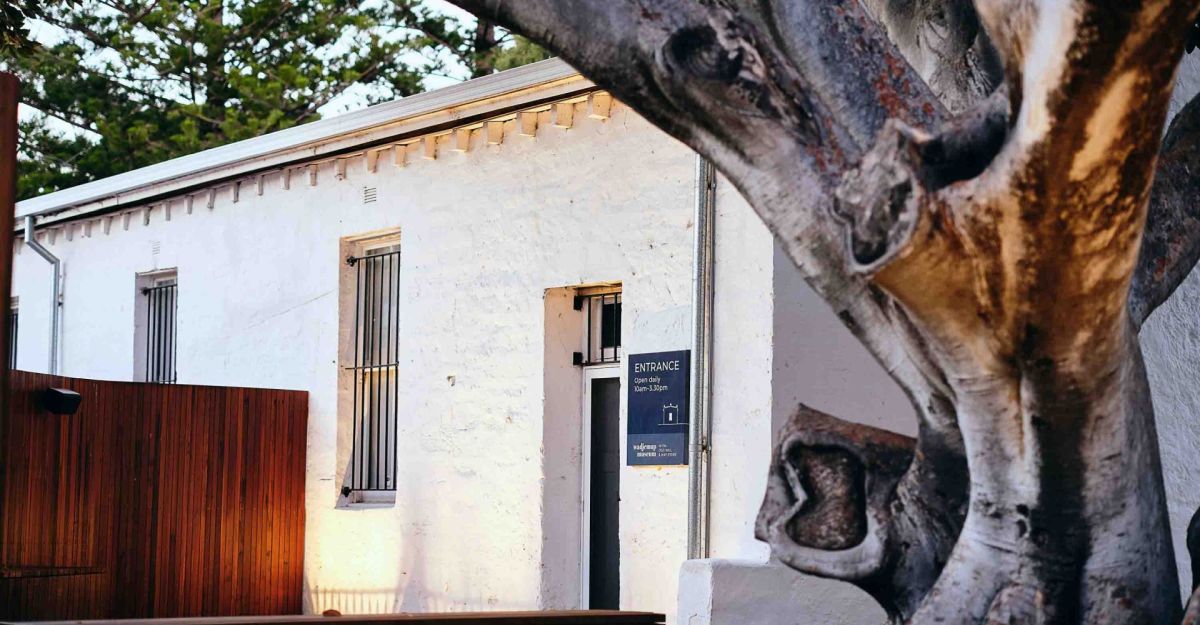The conversations I kept hearing about the TV version of Margaret Atwood’s The Handmaid’s Tale – in the media, on social media, at gatherings – started to irritate me. About how it could happen: it’s not that farfetched; America is on the brink of a totalitarian regime and Australia’s not far behind; it happens to women all around the world already you know, especially in those countries where women are not allowed to drive.
The Handmaid’s Tale is regularly being referred to, in somewhat titillated tones, as a ‘wake-up call’. It’s what can happen to good, decent people if they stop being vigilant and let their rights be eroded.
I got a similar feeling when I saw an older-looking white man put his hand up on ABC’s Q&A to express his genuine fear that Muslims will take over Australia and implement Sharia Law.
In both instances, the fear is palpable. That ‘we’ are at risk of being overrun by ‘them’. A foreign force, a system of brutal control.
Everyone was talking about The Handmaid’s Tale at the same time that the sentence was handed down, by a jury containing no Indigenous people, to the person who killed Aboriginal teenager Elijah Doughty in Kalgoorlie a year ago this week. The killing of a child earned the person responsible a three-year sentence for ‘dangerous driving causing death’. This driving was done from behind the wheel of a 4WD vehicle while Elijah was on a 70cc motorcycle. Three years; if the person who killed Elijah is granted parole, he could be released as early as 2018.
Fictional totalitarian regimes and imagined futuristic dystopias aside, isn’t this an example of the wake-up call Australia should listen to? Where a child’s life is so under-valued that the very laws supposedly made to protect him are in fact protecting the person who took his life?
This is far from an isolated incident. Cases where Indigenous people have been killed or allowed to die or refused justice are legion, as this small, incomplete list compiled by Chris Graham attests to.
There is something off about fearing a fictional or future dystopia when we live in a country that has already created a real one. What is colonisation other than a totalitarian dystopia for those whose country was invaded, whose rights were stripped, whose languages were silenced, whose children are stolen and killed? It’s quite a privilege to fear an imagined dystopic future of subjugation when you are living a life that stems from, depends on and continues to enact, daily, the subjugation of others.
A summary of the aspects of The Handmaid’s Tale I heard discussed as being terrifying included: women having their names taken away from them; women not being allowed to work, earn money or own property; women not having control of their bodies; women having their children taken away from them; women having to obey a set of social, religious or political laws they find abhorrent; and churches and other cultural institutions that don’t adhere to the ruling power being destroyed. The worried man on Q&A was particularly concerned about being forced to live by the laws of Islam, and possibly even about being forced to speak in a language other than English.
In Australia, these things have already happened and continue to happen. They are our history and present. Slavery, incarceration, being forbidden to speak in language, having children stolen, being forced to adopt Christianity, having land stolen with no negotiation or recompense, being brutalised, mocked, violated and murdered. This is a list of ‘terrifyingly dystopic’ actions that settler society has perpetrated against the First Nations people of this country for the two hundred and twenty-nine years of occupation.
The Elijah Doughty case points clearly to the fact that these atrocities are not a thing of the past, a place where (to quote LP Hartley) they ‘do things differently’. They are happening now. In this real dystopia where white Australians are the ones in power, the ones to be feared.
Last year I was fortunate to attend a grassroots writers’ festival in Broome, where I ran a workshop on speculative fiction. I set the group an exercise: imagine a future world, an alternative present or a past world. One of the participants offered as her provocation a past where the British had not colonised this country, but had rather peacefully ‘settled’ here. It was an ideal version of what ‘settlement’ could mean: the difference between moving in next door to someone and kicking them out of their house. This version of settlement didn’t happen then, which is one reason why a treaty is so important now.
On the same trip I went to the book launch for Two Sisters (by Jukuna Mona Chuguna and Ngarta Jinny Bentan with Eirlys Richards and Pat Lowe), published by Magabala Books. It is an incredible autobiographical account of the different stories of first contact with white people that these two women had, as recently as the 1960s. Jukuna’s account is thought to be the first such work written in Aboriginal language (Walmajarri). One of the many things this book highlights is that the word ‘Australia’ is itself an imposition; a foreign term meaning nothing to the people who have lived on this land for thousands of years. It doesn’t get much more dystopic than being told that the place you are from has a different name, and it’s where you live now (a notion that has been teased out superbly by Callum Clayton-Dixon).
So many First Nations people are writing, speaking and creating articulate work about these experiences. For instance, this podcast featuring Nayuka Gorrie, in which she takes pain, at clear emotional cost, to explain the experience of oppression to a well-intentioned panellist. As I was reminded at another panel recently, hosted by Arts House and titled Art and Action: Displacing Whiteness in the Arts, the burden to explain, educate and argue is heaved onto First Nations people and people of colour. An audience member made a reference to nice, white, well-off people feeling like Neo in The Matrix once they wake up and realise what is actually happening; feeling like heroes for noticing.
I am very aware of articles such as this contributing to this canon of behaviour, but better to say something than not. Better to notice, and feel powerless and guilty and foolish and white, than continue to live blinkered and sheltered and shut down. Better – as Nayuka Gorrie suggests – to feel awkward and uncomfortable and take action, than to stay comfortable and uninformed.
I am bowled over by the generosity of First Nations people who continue to make space for white people, to invite and welcome us to country and to share stories and knowledge. In the Tanderrum ceremonies that I’ve attended over the last few years – the gesture of being welcomed by Elders of the five clans of the Kulin nation – we are told that we are all welcome to country. If I remember correctly, within this welcome is a request that we do no harm to the country or to children. White Australians obviously have an appalling track record on these fronts, and yet the welcome is still offered.
This is a privilege that hasn’t been earned. It is given freely.
TV show Cleverman is a new piece of pop culture that also creates a dystopic vision, but something more interesting is happening in this program. Something that will hopefully revolutionise Australian television storytelling and the genre of science fiction. Like The Handmaid’s Tale, this show places us in a ‘not-too-distant future’ that looks and feels similar to where we are now, but with some aspects of life and law drawn out more extremely. Where the Indigenous-created Cleverman differs is that is offers a vision of a superpower, of a force that white Australians are yet to reckon with, that once it appears, will bring about a radical shift in how we live. As a writer and reader I’m interested in these approaches to speculative world building, ones that push deeply into and out beyond familiar dystopic visions. I think of other works in this space like the Binti series by Nnedi Okorafor.
The time to change the story is now. I’m not sure how to do it and it seems overwhelming. I detest colonisation but I am an active participant in it, from the notion of property ownership to the assumption that everywhere I go in Australia I should be able to speak and be understood in English. I don’t know how to unravel this tightly knit mess. But it starts with acknowledging the past, and the continuing present. I can research and learn. I can put my body and my resources forward in support. Above all, I can listen to those whom this lived dystopia impacts the most.
Our treatment of asylum seekers is a fundamentally connected aspect to this dystopia. The failure of imagination and compassion by white Australian policymakers here is astounding. And as Elder Rhonda Grovenor Dixon asks in the show Tribunal, why wouldn’t First Nations people be consulted on this subject? Those who have been caretakers of the land are the ones who can and should offer asylum – not those who have stolen the land and used it for their own violent purpose.
Actually listening to and consulting with First Nations Elders at governance and public policy levels would be transformative for this country. The knowledge of people of the oldest continuous living cultures surely has more to offer contemporary dilemmas – from environmental crises to mass migration – than cultures of invasion, landgrabbing and domination.
Until white Australia owns its role in creating a real dystopia, a toxic imbalance of power will continue and Australia will struggle to flourish. And by flourish, I don’t mean ‘jobs and growth’. I mean the kind of growth that is about maturing, acknowledging past and present wrongs, amending where possible, and changing how things are done. So they can be done differently, for everybody.



